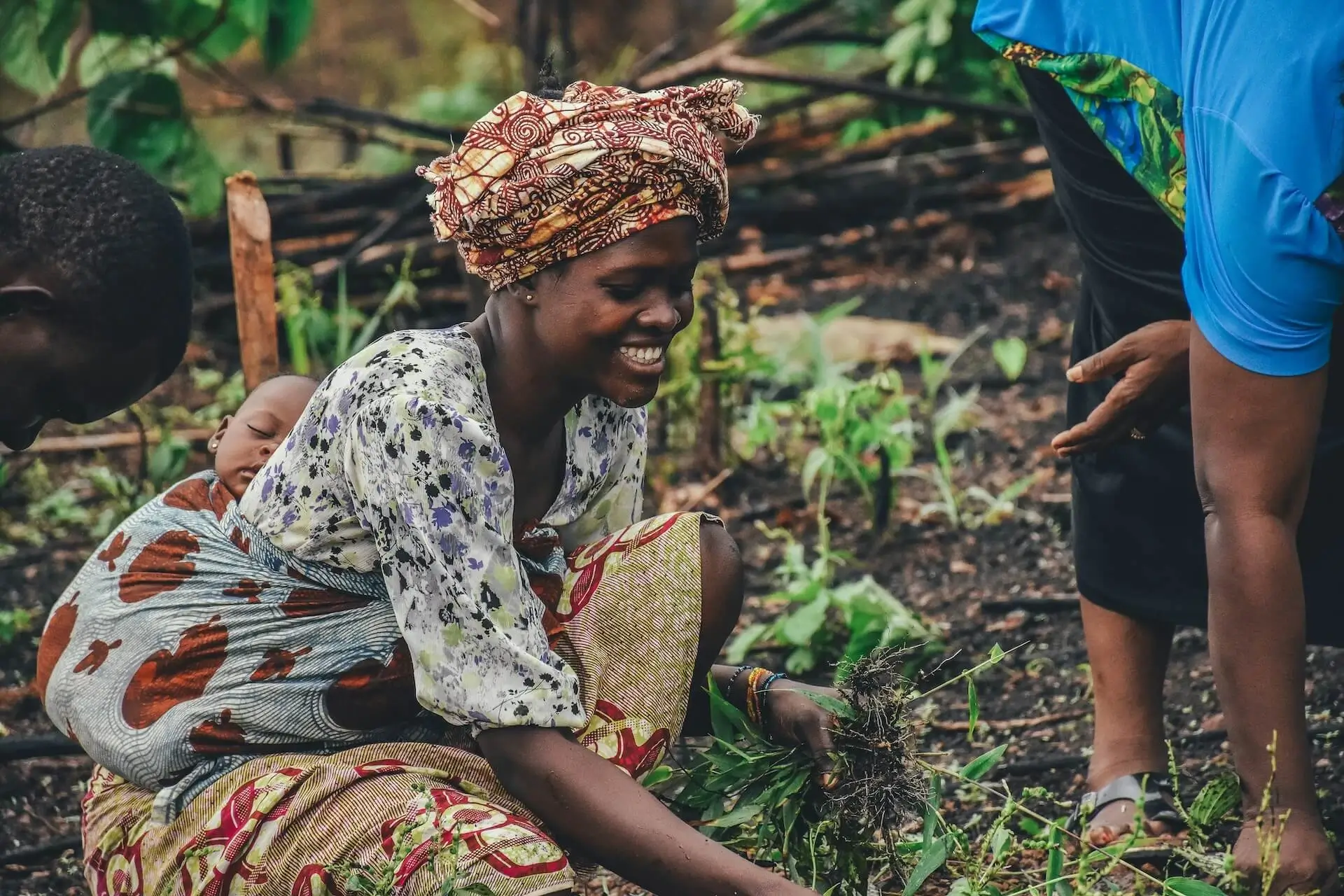95% of agriculture in Kigoma – the western Region of Tanzania depends on natural rainfall. This means it has to be grown in the rainy season which runs from October to May. The farming season for 2023/2024 started in October 2023 when rainfall started. Every farmer has been busy with farming work since then learning, farm preparation technology adaptation, planting, managing and harvesting for enough food production. Drought is a huge challenge to the community which has to struggle through it as climate change is heating the earth harshly.
Mboni ya Vijana Group is playing a vital role in enabling the families self-sustained and capable of overcoming global challenges at the local scale and making our planet Earth a better place for everyone. This report explores the progress and achievement registered by Mboni ya Vijana and the community of Kasulu rural in Kigoma Tanzania from October 2023 to January 2024.
Improved and sustainable farming
Since October we have trained 176 farmers in best farming practices including making and using biochar in farming, the use of best quality seeds and provisions of the best seeds of cassava, maize and sunflower. We concentrated as well on the importance of managing the farms/crops so the yields are better.
Dorosia cares for three grandchildren at her home and has never been able to get good yields at her farm in Ruchugi village. In 2023 she trained in best farming practices, biochar making and use and later given improved maize and cassava seeds to plant. “I am lucky to be one of the other beneficiaries of this project. I never had a good farm like this, I believe it’s best is because I used well the knowledge, skills, inputs (better seeds) and close monitoring from MVG (Mboni ya Vijana Group). This year (2024) is the best for me because I am sure to harvest good yields of maize and will have as well best of cassava for both food and money to improve my life” – she expressed.
Water
Girls and boys walk between 5 km and 10 km to schools where there is no water causing their school time to be difficult. Mboni ya Vijana has drilled and installed hand water pumps in 8 secondary schools since October 2023 providing water to 4000 water users in Kasulu rural. We choose Nyanganga one of the other schools a case of our report.
Victoria is a form two student at Nyanganga Secondary School, she says “We (students) were collecting water from the ponds in the far bushes causing our studying time to be wasted. We (girls) were at a very high risk of getting raped because no care was with us. The absence of water in our school made us uncomfortable to attend school sessions when we were in our menstrual cycle. Now, those challenges are no longer an issue. We thank Mboni ya Vijana and the donors who made it happen to our school, thank you so much” – she finished.
Tree planting
Mboni ya Vijana has been encouraging families, institutions and other sectors to plant indigenous trees as one of the measures to mitigate climate change effects and support environmental conservation. Between October 2023 and January 2024, Mboni ya Vijana has distributed and supported the planting of trees to 116 individuals planting 1360 trees, 4 institutions planted 823 trees and 2 youth groups planted 1200 trees at different places.
Rungwe Mpya Secondary School represents the other forestry beneficiaries where 257 trees have been planted. Faraji and Elia are the students of this school who represented the other students during the receival of the trees. Faraji says “We learn the importance of trees but we haven’t been planting them. We are excited by this initiative, today we received 257 trees but we want to plant more. We want every student to plant and manage at least 2 trees”.
Elia, on his view, says, “This action must spread out of the school so every family must plant trees for the shade, carbon dioxide trap and rainfall attraction. You (Mboni ya Vijana) are opening our eyes and brains toward tree planting and environmental management and we are going to be the ambassadors of it” – Elia finished.
Mboni ya Vijana is deeply concerned with transforming rural communities toward a better tomorrow by improving the environments for income and food production, access to clean and safe water and complement to climate change effects. We still need support from experienced experts and finances to keep us achieving distinguished impacts on our society
Thank you again for your support.

